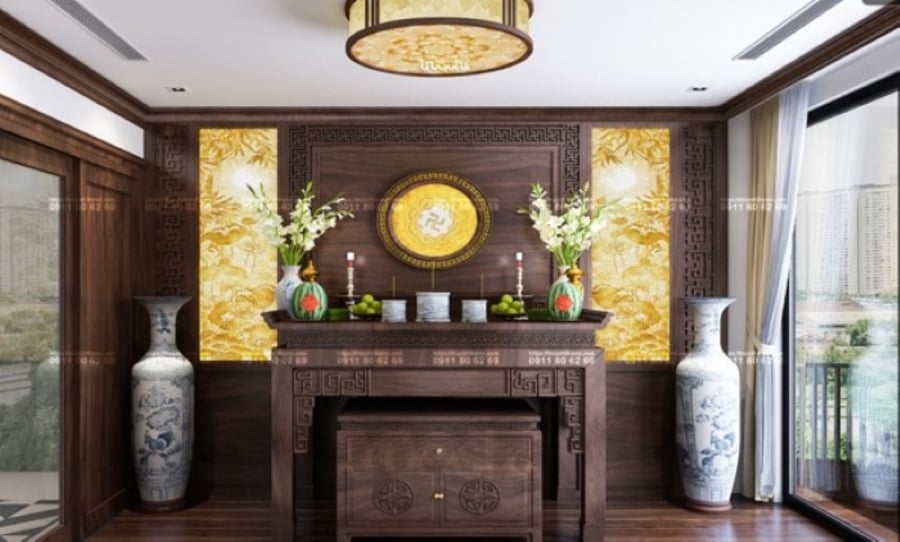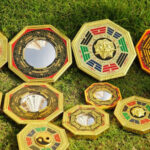The lighting in a prayer room is an important consideration, and finding the right balance can bring good fortune and prosperity to the household. So, how much light is too much, and should an altar room be bright or dark?
1. Bright or Dark: Which is Better for a Prayer Room?
A prayer room or altar is a sacred space, a place of rest for our ancestors and a way to show respect to the gods and our forebears. It is a place where yin energy is most concentrated, and so peace and tranquility are essential.
When designing a house, monks often help homeowners choose the best location and orientation for their altars, taking into account the natural light and finding a balance that works.

Soft lighting is best for a prayer room. (Illustrative image)
However, during the worship process, some families make the mistake of altering the lighting, which can disrupt the energy of the space.
In reality, a prayer room does not need a lot of light. Strong light can be uncomfortable for the spirits, and too much light can disperse the energy, leading to bad luck for the household.
Red or warm yellow lighting is ideal for a prayer room, creating a soothing atmosphere. Avoid direct sunlight and strong winds, and keep the altar away from windows and large doors. There’s no need for bright lights here.
2. How to Remedy an Overly Bright Altar
If your prayer room is too bright, here are some remedies to try:
If your altar is near the front door, use a screen to reduce the light and create a sense of peace. For altars near windows, draw the curtains to control the light. If you need to use electric lighting, opt for warm yellow lights, and avoid chandeliers or high-wattage bulbs that can be too bright. Ensure the light doesn’t shine directly into the eyes of those praying or onto the incense burner.
This article is for reference only and is not intended to be taken as absolute truth.





































